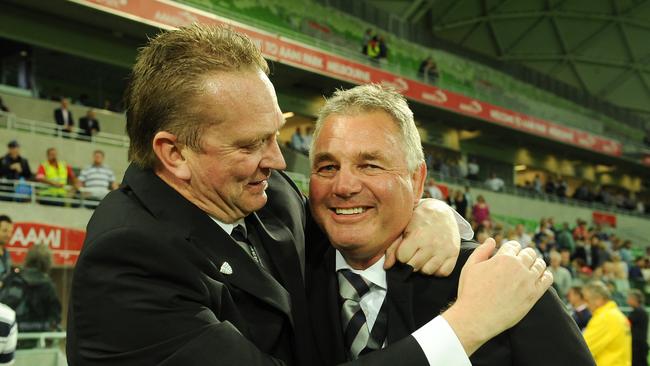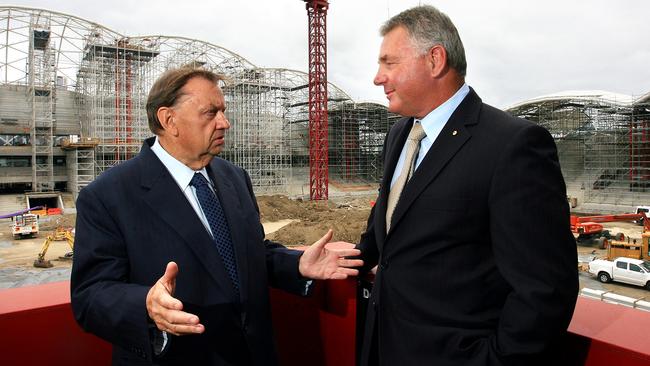World Cup-winning coach Rod Macqueen: Why axing Melbourne is not in the best interests of Australian rugby

Many argue preserving the assets and infrastructure developed by the Rebels over the years is crucial. Terminating the franchise could lead to significant losses in a competitive sporting landscape.
RA’s governing body must reflect on its role leading up to this announcement. Victoria, Australia’s second-most populous state, is vital for achieving the core objectives of Australian Rugby. Expanding the competition through a new team in Victoria was initially seen as a strategic move.

Investing in emerging sports markets offers several benefits:
1.Expansion of participation base and talent pool: New franchises raise awareness and create pathways for participants, enhancing the long-term quality of the sport. The increasing number of Victorian players in the Wallabies squad highlights this success.
2.Expansion of fan base: New franchises attract previously disengaged fans, creating new revenue opportunities through ticket sales, merchandise, and sponsorships.
3.Diversification of revenue streams: Emerging markets reduce dependency on existing revenue sources, strengthening financial stability.
4.Long-term growth potential: While immediate success is rare, investing in new markets fosters long-term growth and sustainability, as seen with the AFL and NRL’s expansion efforts.
The AFL’s successful expansion into new markets with teams such as the Brisbane Lions, Greater Western Sydney Giants and Gold Coast Suns demonstrates the effectiveness of long-term strategic investment and support. Similarly, the NRL continue to successfully open up new markets.

The Rebels faced significant challenges from their inception. Australian Rugby restricted them from signing players under contract until negotiations with the existing franchises were completed, forcing the Rebels to look overseas for competitive talent, a costly endeavour.
Despite these hurdles, Victorian rugby – through the Rebels – has made substantial progress since that first season in 2011. Consider:
• 17 Wallabies have been developed in Melbourne
•18 Wallabies have joined the Rebels
• Four homegrown Wallabies
• 12 Rebels have played at the international level
• 25 Australian Under-20 representatives
• Rebels women’s rugby team
• Supported Victorian wheelchair rugby, which produced one-third of the Aussie Steelers and also Australia’s first female wheelchair international.
The Rebels also led the way by being the first rugby union franchise to remunerate women for their sport, reflecting their commitment to gender equity.
Rugby Australia’s decision puts the future of both Victorian and Australian rugby at risk. Should the focus be on short-term fixes or long-term strategies?
Safeguarding the assets and infrastructure in Victoria is crucial for securing long-term business opportunities and franchise growth.
The local consortium’s willingness to work with RA suggests there might still be room for negotiation. This will allow the game to build on the impressive development initiatives the Victorian rugby community has introduced such as the Weary Dunlop Club, the Rugby Academy and the Pacific Island engagement strategy.
Financially, Rugby Australia struggles to compete with major sporting competitors. However, smarter strategies could help achieve their goals.
Simplifying the game’s laws, particularly at the breakdown (which has more than 20 laws), could make it more understandable and enjoyable for players and spectators.
Moreover, we should be capitalising on the success of Australia’s women’s teams, and in particular our sevens women’s teams. Both men’s and women’s sevens rugby are Olympic sports, which present untapped opportunities, particularly in regional areas.
Rugby is a great game with a well-deserved and proud history. There is much to be positive about as the game tackles these challenging times.
As Eleanor Roosevelt said, “It’s better to light a candle than curse the darkness.”
Australian Rugby needs forward-thinking to navigate these challenging times. It’s a moment for positive, innovative solutions to secure a bright future for the sport.
Rod Macqueen AM was the inaugural coach for the ACT Brumbies – Australia’s most successful Super Rugby team; guided the Wallabies to the 1999 World Cup, won the 2001 British and Irish Lions series and was launch coach of the Melbourne Rebels in 2011






The longstanding principle that adversarial decisions rarely benefit business or sport is being put to the test with Rugby Australia’s controversial decision to terminate the Melbourne Rebels franchise. This move raises the critical question: is this decision truly in the long-term business interest of Australian Rugby?